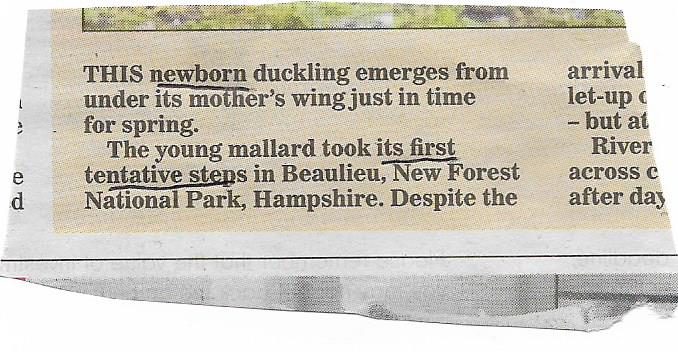 Sunday Express, April 1, 2018
Sunday Express, April 1, 2018
For the nth time, anything that comes from an egg ‘hatches’ or ‘is hatched’. It is not ‘born’. Maybe I will see it done correctly before I die, but it doesn’t seem likely.
Ducklings are ‘nidifugous’ (Latin: nidus nest, fugere to flee) which means they are able to walk, swim and catch their own food as soon as they hatch. There are no ‘first tentative steps’. This is not an obscure piece of knowledge – anyone who has seen young ducklings must be aware of it. I’ve said it before – there seems to be an attitude these days that knowing anything about nature or science (or Latin, for that matter) is ‘nerdy’ and that it is a badge of honour to be ignorant. How sad.
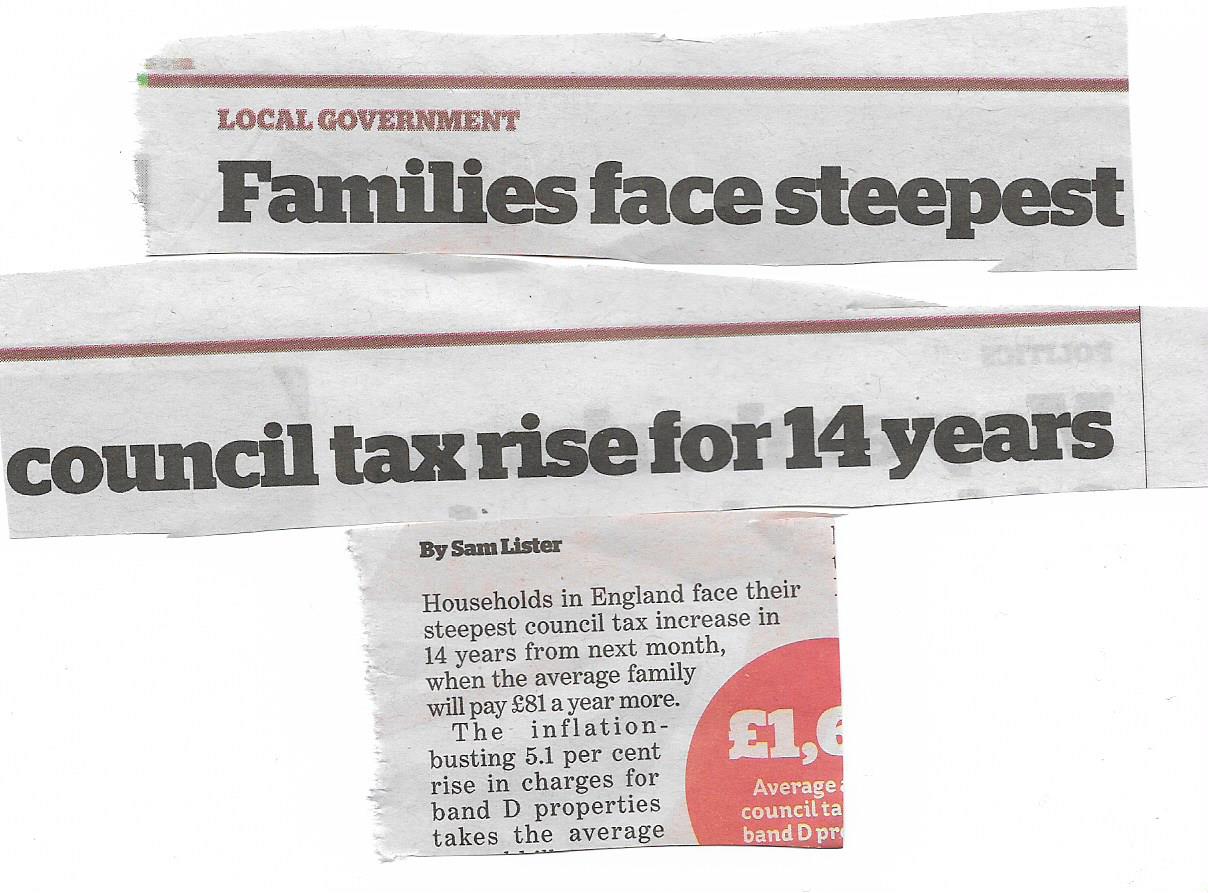 i newspaper, March 29, 2017
i newspaper, March 29, 2017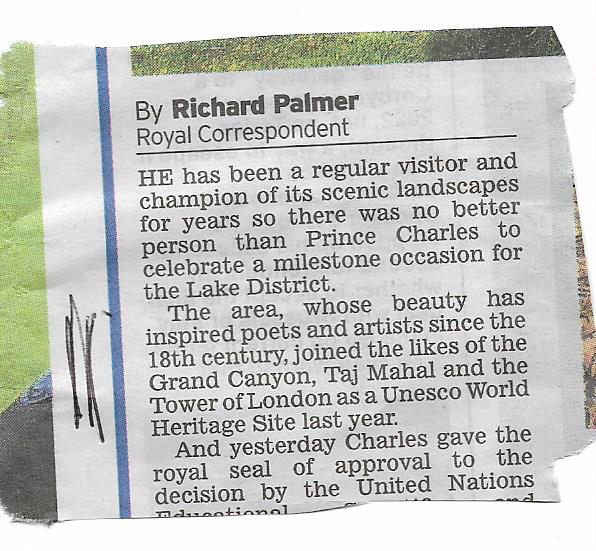 Daily Express, March 27, 2018
Daily Express, March 27, 2018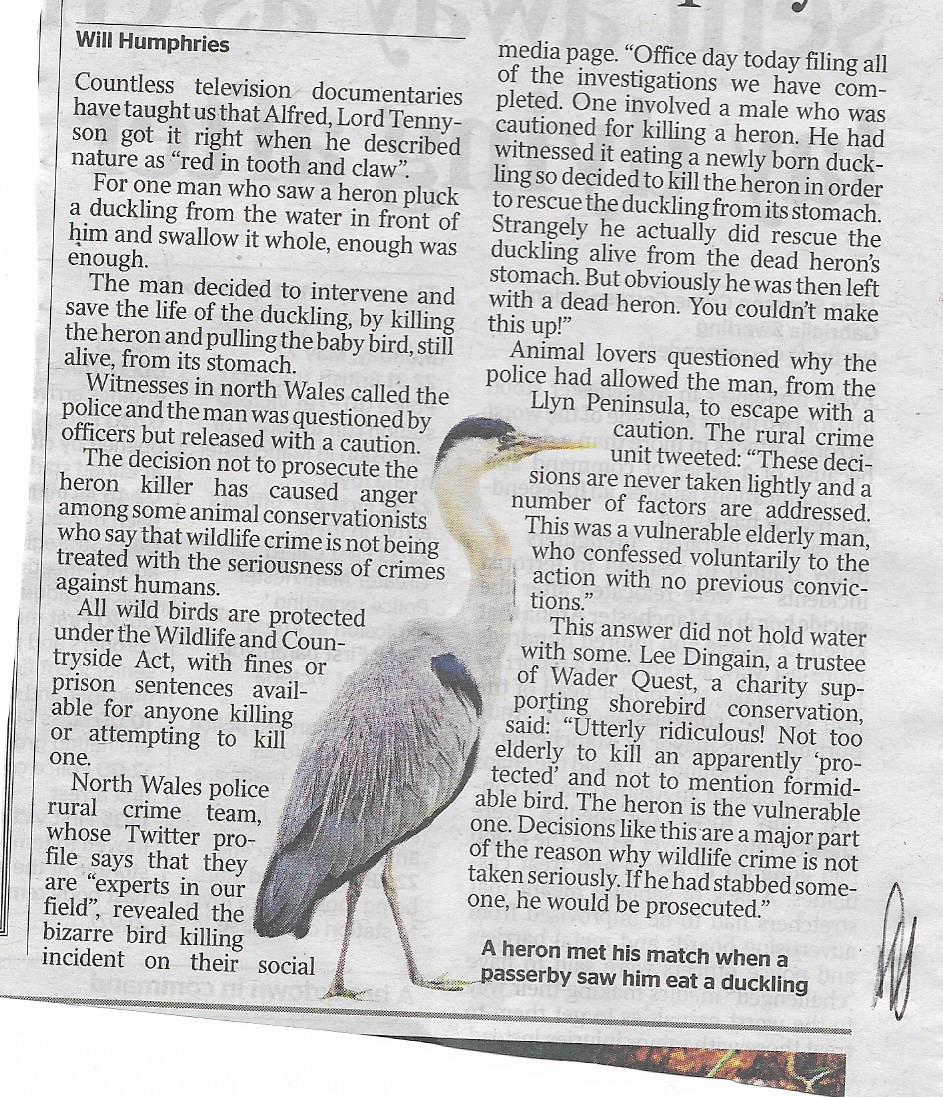 The Times, March 28, 2018
The Times, March 28, 2018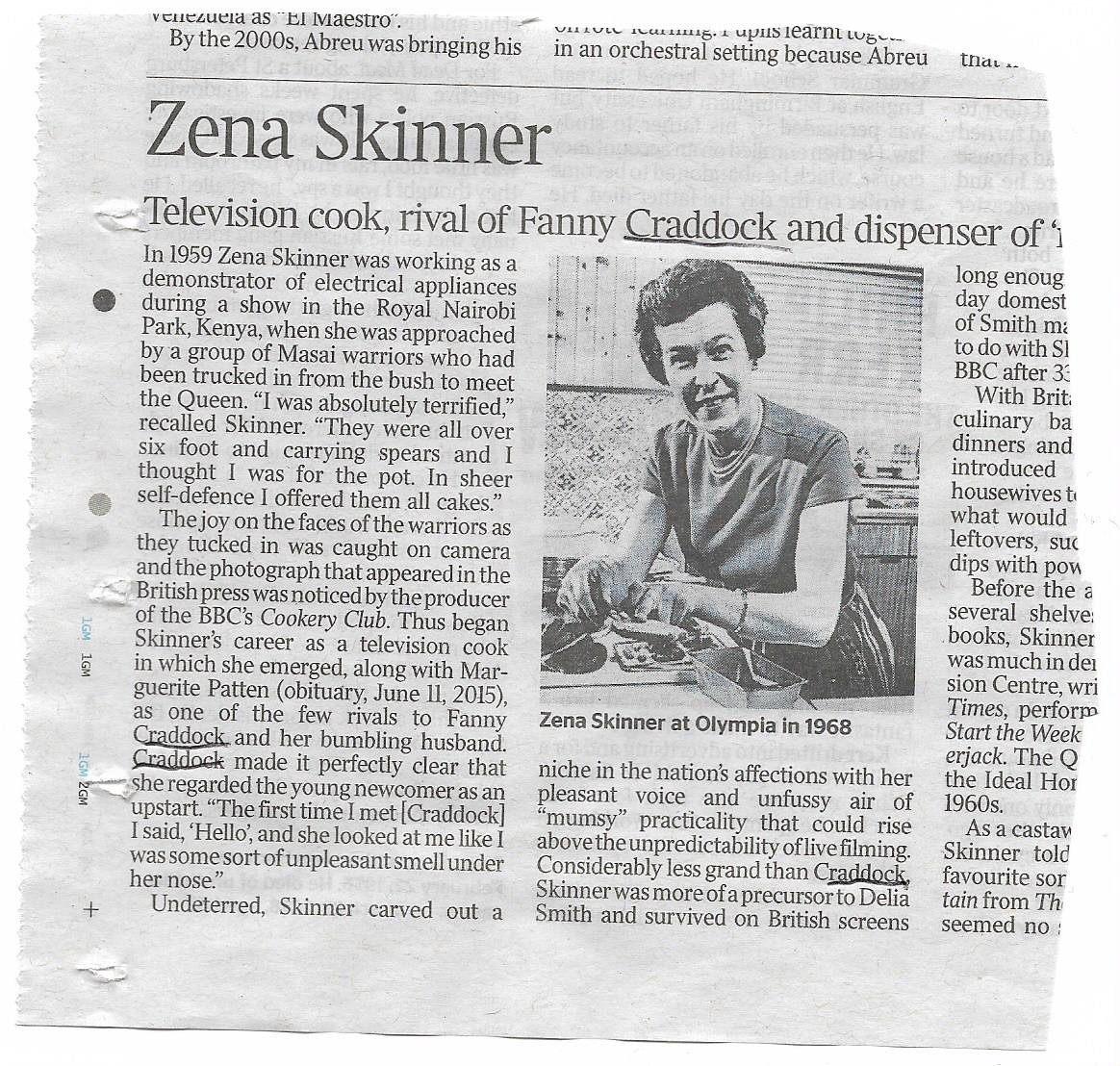 The Times, March 26, 2018
The Times, March 26, 2018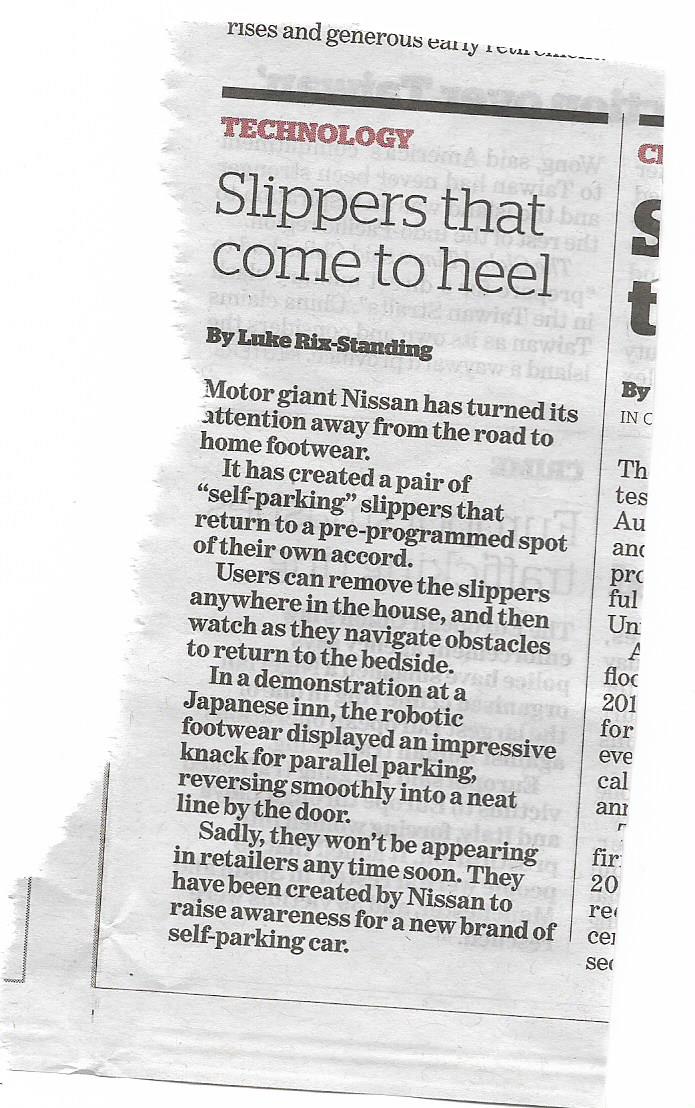 i newspaper, March 23, 2018
i newspaper, March 23, 2018 The Times, March 22, 2018
The Times, March 22, 2018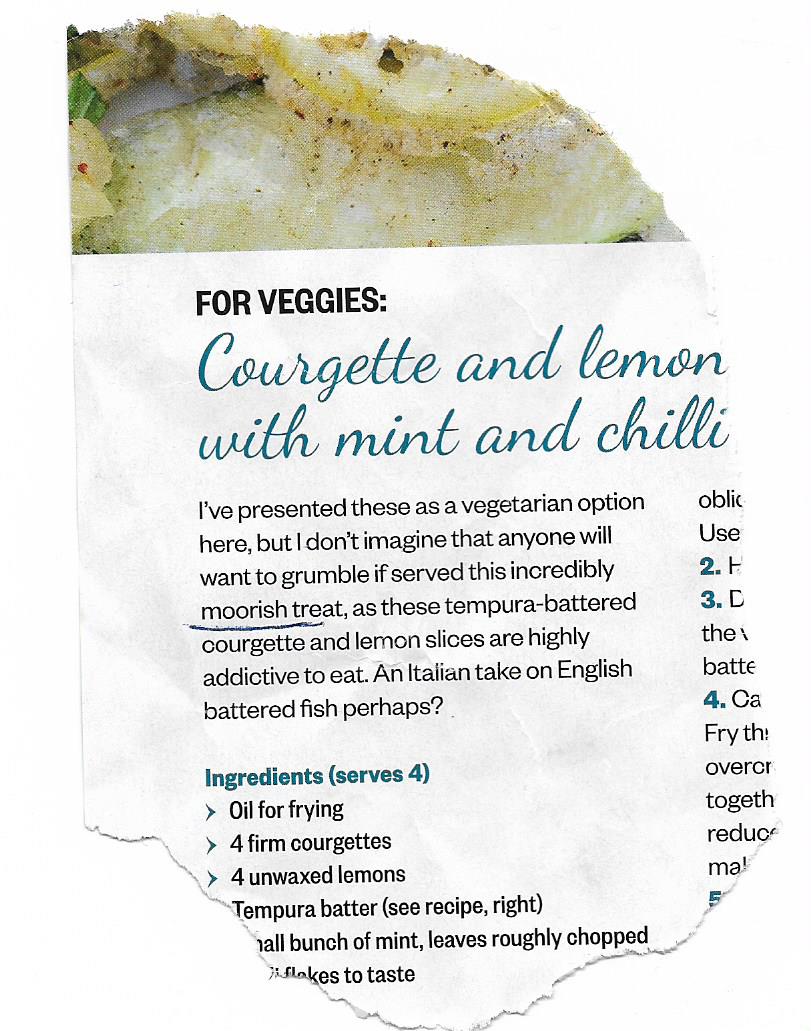 BBC Countryfile Magazine, September 2017
BBC Countryfile Magazine, September 2017 i newspaper, March 20, 2018
i newspaper, March 20, 2018